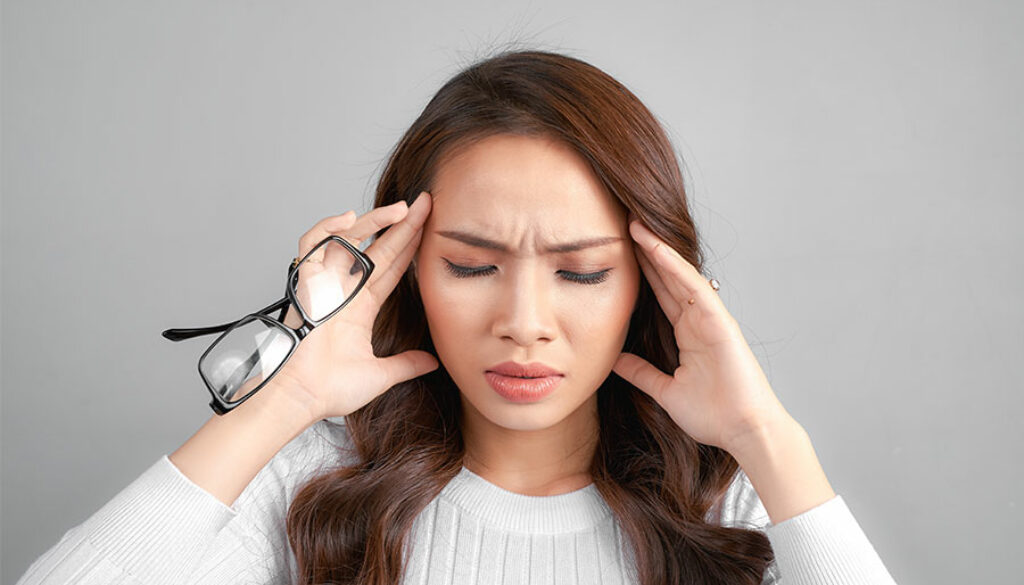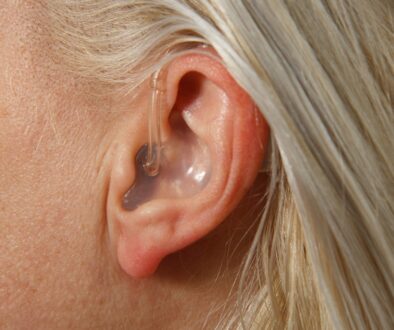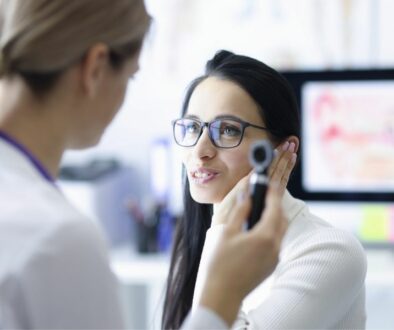Meniere’s Disease: Symptoms, Causes, and Treatment
What is Meniere’s Disease?
A sickening spinning sensation. Hearing loss. Ringing in the ears.
For those who have Meniere’s disease, these symptoms can make day-to-day life challenging at best.
Meniere’s Disease is a disorder of the inner ear that causes intense vertigo, which can last one to two hours. It requires treatment from an ear, nose and throat doctor or Meniere’s disease specialist.
If you suffer from Meniere’s disease, you are not alone.
Meniere’s disease affects 615,000 Americans, and every year there are another 45,500 more people diagnosed, according to the American Hearing Research Foundation.
You may find it interesting to know that Alan Shepard, the first American man in space, developed Meniere’s disease sometime after his ground-breaking achievement. Ironically, the disease kept him from piloting the ill-fated Apollo 13 mission.
What are the Symptoms of Meniere’s Disease?
Meniere’s disease is a disorder of the inner ear and is a cluster of symptoms.
The hallmark symptom is intense and extreme vertigo which is a spinning sensation.
While Meniere’s disease is a cluster of symptoms, it’s typically vertigo that presents the most daily challenges and is the one that causes most to seek treatment from an otolaryngologist or Meniere’s disease specialist.
Other symptoms may include:
- Tinnitus, a sensation of ringing in the ears
- Feeling of fullness in one or both ears
- Feeling pressure in one or both ears
- Muffled or reduced hearing
In addition, sometimes people will experience blurry vision, a rapid heart rate and even diarrhea during an acute episode.
What Are Drop Attacks and How Are They Related to Meniere’s Disease?
Fortunately, drop attacks are rare.
However, for those that do have them, they are a particularly disturbing aspect of Meniere’s disease. Fortunately, not everyone with the disease will experience them.
A drop attack is a sudden, abrupt fall that occurs without warning. During the fall, the person does not lose consciousness. The medical term for these drop attacks is Tumarkin’s otolithic crisis. Often, these falls can lead to serious injuries.
What Causes Meniere’s Disease?
There is no one clear cause, but ongoing research suggests that Meniere’s disease is a disorder of the inner ear, which is a vital part of your vestibular system.
This system helps your body and brain work together to determine how your body is positioned. This makes it possible for you to keep your balance and walk upright.
The vestibular system involves several tiny organs within your inner ear. These organs are referred to as the labyrinth. They are filled with a fluid called endolymph.
This fluid circulates, stimulating receptors that provide your brain with vital information that helps it determine your body’s position. However, in those with Meniere’s disease, it appears that there is too much endolymph.
Researchers and Meniere’s disease specialists believe this may be the underlying cause of the problem.
These abnormalities in the fluid may be due to a viral infection, genetics or difficulties draining fluid from the ear. In addition, they might be related to increased salt intake.
Meniere’s disease is typically diagnosed and managed by general otolaryngologists.
7 Things You Need to Know About Meniere’s Disease
If you’ve had any of the above symptoms, you need to learn about Meniere’s disease and how it’s treated. Here are some important facts about the disorder that you should know:
- Meniere’s disease can occur at any age.
While symptoms can appear at any age, most cases occur in those over 40 years old.
- It affects both men and women equally.
Both men and women have an equal chance of getting the disease although research indicates that women are possibly more likely to actually receive a diagnosis of Meniere’s disease.
- It’s named after a French physician.
Prosper Meniere made a groundbreaking discovery about the disorder that would bear his name.
Before Meniere, physicians believed this cluster of symptoms was related to problems located deep within the brain.
However, in 1861, Meniere realized that the inner ear that was the source of the issue, according to the American Hearing Research Foundation.
- Typically, Meniere’s disease involves one ear.
However, in around 15 percent of cases, both ears are affected.
- Meniere’s disease can be difficult to diagnose.
One of the main challenges in diagnosing and treating Meniere’s disease is that it presents itself in different ways to different people.
For some, it may begin as a hearing loss, while with others, vertigo is the first symptom.
In some cases, it may be years between episodes, making it particularly challenging for ear, nose and throat doctors to diagnose.
This is one reason why it is so important to seek help from an otolaryngologist and a Meniere’s disease specialist if you are exhibiting any of the symptoms listed above. Symptoms may even change as the disease progresses.
- Attacks are unpredictable and may vary in severity.
Acute episodes or attacks of Meniere’s disease can occur either months apart or sometimes several times a week.
- There is no definitive test for Meniere’s disease.
While there’s no one medical exam that will diagnose Meniere’s disease, otolaryngologists and Meniere’s disease specialists use information from your medical history to arrive at a conclusion. However, an audiogram is very valuable in confirming the diagnosis of Meniere’s disease.
In order to diagnose Meniere’s disease, physicians look for symptoms such as tinnitus, hearing loss, or a “full” feeling in the ears. Or if you have had two or more episodes of vertigo that last typically one to two hours each, according to information from the National Institute on Deafness and Other Communication Disorders.
While imaging scans such as an MRI or a CT cannot diagnose Meniere’s disease, it can help doctors rule out other causes.
How is Meniere’s Disease Treated?
There is no cure for Meniere’s disease, however, with proper treatment from an ear, nose and throat doctor, the symptoms can be effectively controlled and attacks of vertigo can be minimalized.
According to information from the American Academy of Otolaryngology-Head and Neck Surgery some of the treatments include:
- Medications—this may also include diuretics
- Eating a low-salt diet
- Intratympanic injections—which deliver medications directly into the inner ear
- Air pressure generators – this delivers air pulses into the inner ear to help balance the internal pressure
If these treatments are not successful, surgery may be considered. However, surgery is only needed for a small number of patients with Meniere’s disease.
Often, it can be successfully managed through medication. In fact, 6 out of 10 people with Meniere’s disease will either get better on their own or be successfully treated with medications.
We Specialize in Treating Balance Disorders
Meniere’s disease has a profound impact on every aspect of someone’s life, and we want you to know that help is available for vertigo and other balance disorders. Contact us for an appointment so we can develop a plan tailored to fit your needs.




